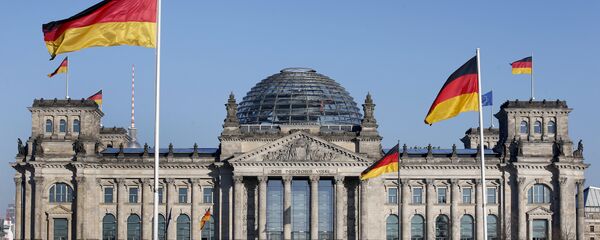Production fell 1.9 percent in November, the worse year-on-year figures since 2009 during the financial crisis, with economic confidence plummeting across the Eurozone to the lowest point in nearly two years, new figures from the German Federal Statistical Office revealed on Tuesday.
The news comes after European Central Bank president Mario Draghi stated last month that the trade bloc had enough momentum to halt further monetary stimulus injections. The latest stats on Europe's largest economy indicate troubles that economists fear another global slowdown.
Several factors have slowed Germany's industrial output, with new emission-testing standards forcing German automakers to cope with new regulations. Workers taking more breaks than usual during the holidays and low water levels in the Rhine river have also been blamed for the setback.
The Frankfurt-based DAX Index remained flat amongst a weakening euro, which fell 0.3 percent to $1.1444 Tuesday morning.
— jeroen blokland (@jsblokland) January 8, 2019
Whilst some economists are optimistic, others remain cautious and skeptical of Berlin's economic indicators.
"Carmakers are likely to catch up on their production, the ECB's monetary policy remains investment-friendly, and China's economic stimulus program is likely to boost the local economy, which will also benefit the German economy," Commerzbank analyst Marco Wagner said.
But Kit Juckes of Societe Generale called Germany's recent figures "terrible", adding that the 1.9 percent month-to-month drop in production and other factors "leaves Q4 GDP growth looking close to zero".
— suresh george (@sureshgeorge) January 2, 2019
CEO and founder of Sun Global Investments Mihir Kapadia said that Germany's once fast-pumping economic engine is misfiring, adding that the US-China trade war has slowed economic demand and compounded problems.
READ MORE: 'Calm Down': ECB's Mario Draghi Tells Italy to Stop Questioning Euro
"Industrial output from Europe's largest economy has been slowing down each consecutive month, since September 2018, with the drop accounting to 4.7% on an annualised basis," Mr. Kapadia said.
"This is in line with global trends, as global risk factors have led to a cautious undertone in the markets," he continued, adding that "unless a more welcoming approach is led, especially from the US, the cracks will only widen further globally."





